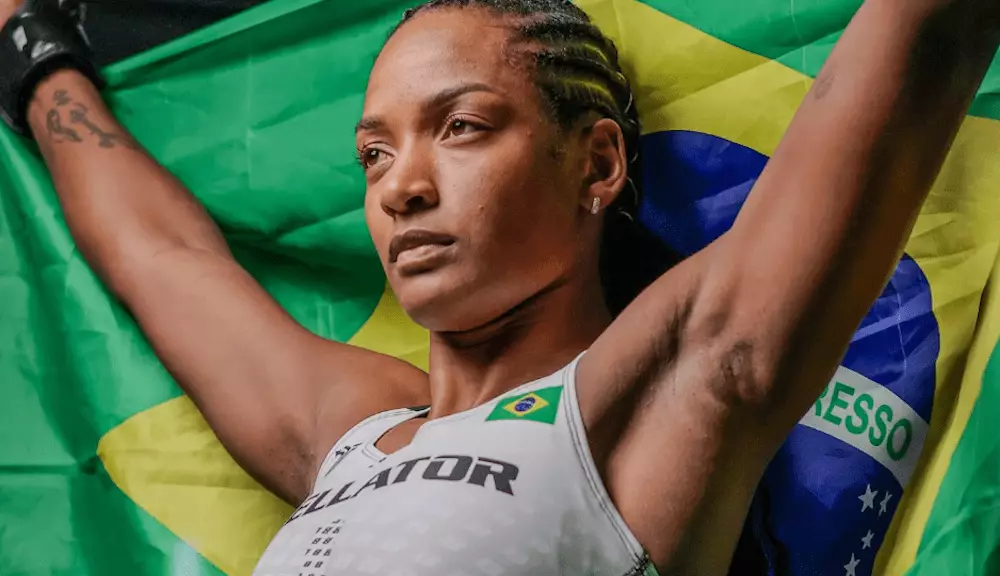Daiane Silva, a rising star in the Bellator MMA circuit, is currently hospitalized in London after experiencing a devastating medical emergency. Initially set to make her promotional debut in a highly anticipated featherweight matchup against Eman Almudhaf on September 14, Silva faced a life-altering situation during the final stages of her weight cut. Amidst the rigorous demands of the sport, the 29-year-old Brazilian succumbed to severe dehydration and fainted, leading to her hospitalization and subsequent coma. This unsettling incident highlights the urgent need for more comprehensive discussions regarding fighter health and safety in mixed martial arts.
Weight cutting is an integral yet perilous aspect of combat sports, where fighters often undergo extreme physical strain to meet weight limits before bouts. While it is a standard practice, the pressures associated with this process can be detrimental to a fighter’s health, as illustrated by Silva’s situation. This case raises pressing questions about the methods used during weight reduction and whether current regulations sufficiently safeguard fighters from such life-threatening conditions. The lack of industry-wide standards or oversight surrounding weight management practices deserves scrutiny, as many fighters continue to jeopardize their well-being in pursuit of success.
Despite the grave nature of her condition, Silva’s situation is now showing positive signs, with her consciousness levels gradually improving. According to her manager, Alex Davis of Davis MMA Management, Silva has been under meticulous medical care since her admission to the Intensive Care Unit. Davis has expressed gratitude for the support extended by Bellator and PFL, which notably includes covering her fight purse and facilitating the presence of a family member during her recovery. This response exemplifies a commendable level of responsibility from the organizations involved, but it is important to determine how such support systems can be standardized across all promotions to ensure that fighters have resources readily available in emergencies.
The response from the MMA community has also been heartening. Cris Cyborg, the newly crowned PFL women’s featherweight champion, has publicly expressed her concerns and well wishes for Silva, networking solidarity in the face of adversity. This response underscores a crucial element of camaraderie that often exists within combat sports, reminding us that behind the competitive nature of the sport lies a community bound by shared experiences and mutual support. Cyborg’s sentiments resonated with many in the fighting world, reinforcing the importance of prioritizing fighter safety over competitive pursuits.
While Silva’s condition appears to be stabilizing, her story is a stark reminder of the inherent dangers in MMA and raises awareness about the necessary evolution in fighter care practices. As the sport continues to grow, so too must the frameworks that govern it. It is imperative that promoters, trainers, and fighters work together to advocate for safer weight management protocols and institutional changes that prioritize athlete health and well-being. As advocates for the sport consider how best to move forward, Silva’s recovery serves as a crucial touchpoint for discussions on combat sports safety reforms.

